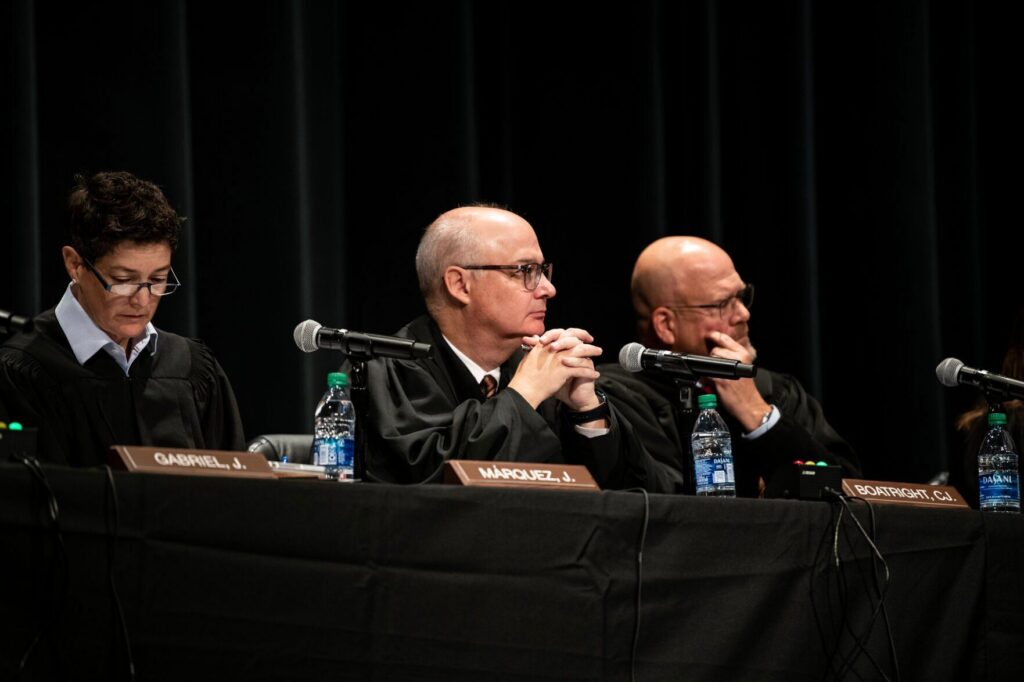Federal judge advances claim against prison guard for allegedly outing man as ‘snitch’

A federal judge last week agreed an incarcerated man could sue a prison guard for allegedly putting him in danger and retaliating against him by revealing to other inmates that the plaintiff filed a sexual harassment complaint.
The plaintiff, who is incarcerated at the Arkansas Valley Correctional Facility, raised allegations against three prison employees that revolved around his report of another inmate’s sexual misconduct pursuant to the Prison Rape Elimination Act (PREA). Colorado Politics is declining to name him due to the risks associated with the “snitch” designation.
First, the plaintiff alleged he spoke with Sgt. Nathaniel Hale three times on Jan. 27, 2024 about the other inmate’s harassment and attempted assaults. Hale said he would “get with” the plaintiff the following Monday but did not make an immediate report under PREA. Three days later, the plaintiff “felt I had no choice but to call the PREA hotline” because Hale’s inaction put his safety in jeopardy.
Second, the plaintiff allegedly spoke with Captain Richard Aragon after calling the PREA hotline, and Aragon assured the plaintiff he would not be retaliated against or moved for making a report. Instead, the next day, prison officials moved him into Unit 6, “one of the most dangerous units.”
Finally, the same day the plaintiff spoke with Aragon, Sgt. Angel Palmer-Morales came to the pod the plaintiff shared with his alleged harasser. Palmer-Morales was wearing “bright blue shakedown gloves,” which allegedly drew the attention of other inmates.
Palmer-Morales allegedly told the plaintiff to stay in his cell until he moved the person from the plaintiff’s PREA complaint elsewhere.
“He intentionally threw me under the bus in front of (the alleged harasser) and in front of the entire pod,” wrote the plaintiff, representing himself. Palmer-Morales’ alleged comments meant “the entire inmate population in C-pod knew the Plaintiff had made a PREA report … putting me in danger of retaliation by other inmates and labeling me as a rat by making the report.”
The plaintiff claimed the defendants were deliberately indifferent to his safety and retaliated against him for making a constitutionally protected PREA report.
The defendants moved to dismiss the lawsuit, arguing the plaintiff had failed to adequately state a constitutional claim.
In a Sept. 18 order, U.S. Magistrate Judge N. Reid Neureiter agreed with them in part. For Hale, Neureiter concluded there was no constitutional violation for failing to immediately report the plaintiff’s claims of harassment. The fact that Hale allegedly said he would “get with” the plaintiff suggested Hale “instead took steps to address the issue with Plaintiff,” wrote Neureiter.
Neureiter further found no allegations that Aragon, who assured the plaintiff he would face no retaliation, was involved with the plaintiff’s move to the most dangerous unit or that he even knew the unit was dangerous.
The situation for Palmer-Morales was different. Labeling an inmate a “snitch” and broadcasting that designation to other inmates, wrote Neureiter, is a clear violation of the Eighth Amendment’s prohibition on cruel and unusual punishment.
As alleged, “Sergeant Palmer-Morales’s actions raised an objective danger of Plaintiff being labeled a snitch or informant, and Plaintiff adequately alleges that Sergeant Palmer-Morales knew what he was doing,” wrote Neureiter.
He also concluded Palmer-Morales’ conduct, if proven, could amount to unlawful retaliation for the plaintiff’s PREA report.
“Plaintiff’s allegations support a plausible inference that Sergeant Palmer-Morales was aware that Plaintiff had made a PREA complaint … (why else would he be getting moved?), and that the public method Sergeant Palmer-Morales chose to remove (the alleged harasser) from the pod intentionally placed Plaintiff in danger,” wrote Neureiter.













